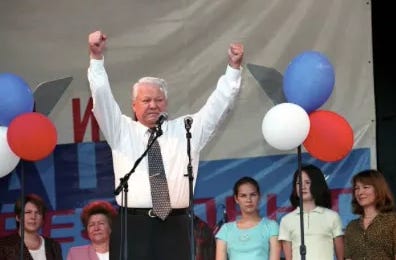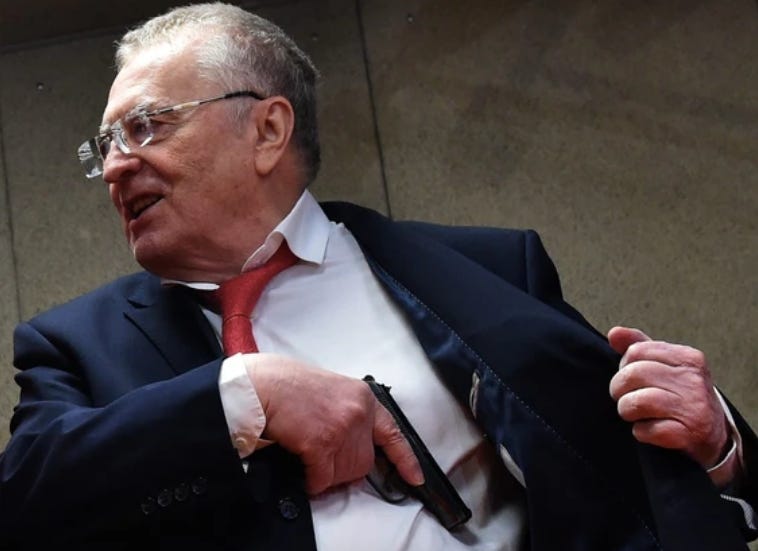By 1996, Russia had evolved from the nascent republic of 1991 into a more volatile entity: a wounded, jaded, and fatigued nation precariously balanced between instability and authoritarian consolidation. The initial joy of independence has deteriorated into economic sorrow, military humiliation, and political division. The 1996 presidential election was not simply a vote; it represented a struggle for the essence of the post-Soviet state.
Boris Yeltsin, now significantly diminished in health and public esteem, stood at the center, campaigning for a second term amidst declining popularity. His adversaries emerged from diverse ideological backgrounds: staunch communists, aspiring generals, progressive reformists, and even the specter of the USSR — Mikhail Gorbachev. The election was rife with media manipulation, clandestine oligarchic agreements, and profound desperation.
Nevertheless, against the odds, Yeltsin emerged victorious. However, at what expense?
Dear Readers and Subscribers,
Welcome to Part 2 of “They Could Have Led Russia”. You can review part 1 below:
They Could Have Led Russia
In the sweeping, chaotic aftermath of the Soviet collapse, Russia was not simply rebuilding a country, it was redefining the very idea of governance. While Boris Yeltsin has come to personify the Russian 1990s in the popular imagination, the reality is far more complex. Between 1991 and 2000, over twenty individuals aspired to the presidency, each reflecting a different vision of Russia’s uncertain future. Some faded into obscurity; others became fixtures in public life or symbols of an era that continues to haunt the present.
Let us now revisit the candidates from Russia's most dramatic election.
PART 2: 1996 — A Country in Peril
The 1996 elections were characterized by much greater unpredictability. These are the only Russian presidential elections that took place in two rounds. And once again, the most prominent candidate was Boris Yeltsin, but over five years of presidency, Yeltsin's popularity had significantly declined due to a whole range of reasons: poorly thought-out economic reforms, the bloody standoff with parliament in October 1993, the war in Chechnya. For the re-election, enormous resources were mobilized, and political technologies were widely applied for the first time.
In the first round, Yeltsin received 35%, and in the second round, he won with a more confident result of 54%.
Keep reading with a 7-day free trial
Subscribe to IS IT PROPAGANDA?® to keep reading this post and get 7 days of free access to the full post archives.





